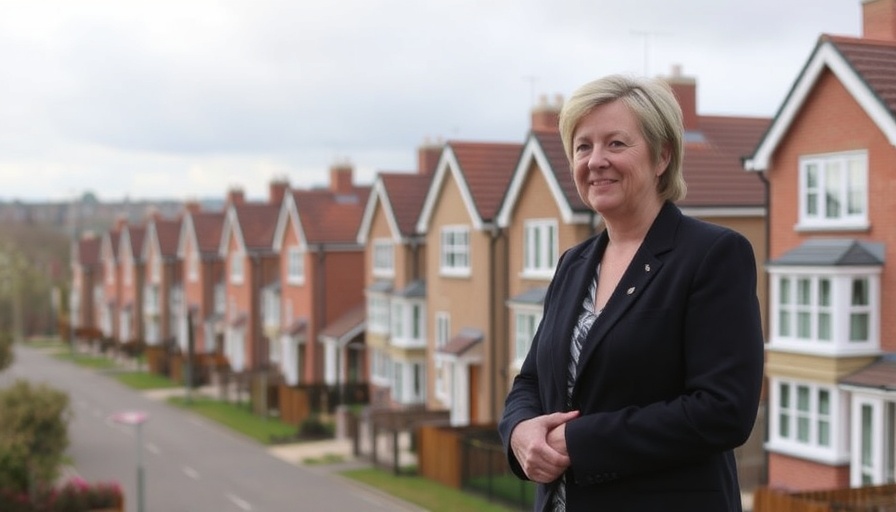
The Housing Crisis: A Deepening Challenge for the UK
The recent announcement by Chancellor Rachel Reeves has brought the housing crisis in the UK into sharper focus. With the UK Government projected to build only 1.3 million homes by 2030, falling short of the ambitious target of 1.5 million new homes, the consequences extend far beyond numbers and statistics. The need for affordable housing has never been greater, particularly in London, where soaring property prices have left many potential homebuyers and renters in a precarious situation.
Understanding the Numbers: A Closer Look
The projections released by the Office for Budget Responsibility (OBR) highlight a significant shortfall in housing development. This news serves as a wake-up call for policymakers and the community alike. Not only does this miss the target, but it also raises concerns about housing accessibility, especially for first-time buyers and low-income families. With a projected deficit of almost 200,000 homes compared to expectations, the ramifications can lead to increased homelessness and further strain on public resources.
The Political Landscape and Policy Challenges
The Chancellor’s confirmation of these figures reflects ongoing debates about the effectiveness of current housing policies and planning reforms. The roadblocks to achieving the housing targets include not just financial constraints but also entrenched planning regulations that slow down developmental processes. A collective effort between the government, local councils, and the construction industry is essential to revitalize the housing market. Only through a reformed planning system and investment in construction skills can the shortfall be addressed meaningfully.
Innovative Solutions to Tackle the Housing Shortage
Amid the grim forecasts, innovative housing solutions offer promising avenues to bridge the gap. Concepts such as eco-friendly construction methods, modular housing, and prefabricated homes are gaining traction as viable alternatives that can both reduce costs and construction time. The integration of sustainable practices not only addresses housing needs but aligns with environmental goals, creating homes that occupy less space and demand fewer resources.
Community Involvement: A Path to Solutions
Community engagement will play a pivotal role in influencing housing policy and project implementation. Local voices are essential in shaping initiatives that prioritize affordable housing and sustainable development. Homeowners in London, particularly, can advocate for strategies that align with the needs of their neighborhoods, thereby ensuring that new housing developments meet the demand for accessibility and affordability.
The Role of Sustainable Design in Future Housing
Sustainable design practices can offer a formidable solution to housing challenges. By utilizing environmentally friendly materials and construction techniques, new developments can minimize their ecological footprint while providing homes that are cost-efficient in the long run. Creating designs that cater to energy efficiency not only helps in tackling the immediate housing crisis but also addresses the broader context of climate change.
Ultimately, the confirmation from Chancellor Reeves that the UK will miss its homes target serves as both a cautionary tale and a rallying cry. Stakeholders, from government officials to community members, must collaborate effectively to transform the housing landscape into one that is sustainable, equitable, and accessible.
As London homeowners navigate this pressing issue, it's crucial to remain informed and engaged in the conversation around housing and sustainability. Your voice matters in shaping a future that prioritizes responsible development and resilient communities.
Take action today: engage with your local representatives about sustainable housing initiatives, attend community meetings, and stay informed about planning developments that affect your neighborhood. Together, we can advocate for a brighter housing future.
 Add Row
Add Row  Add
Add 




Write A Comment